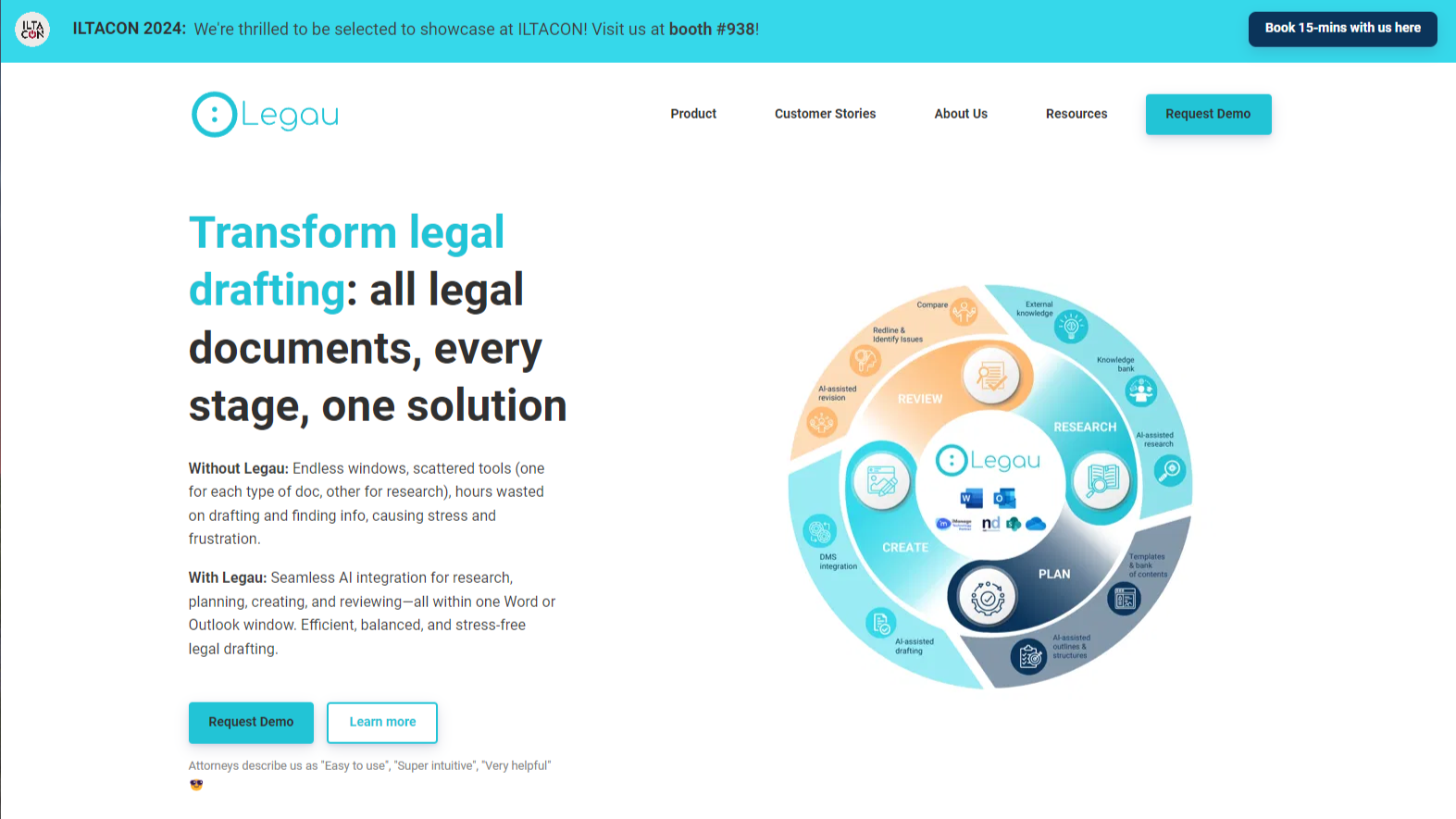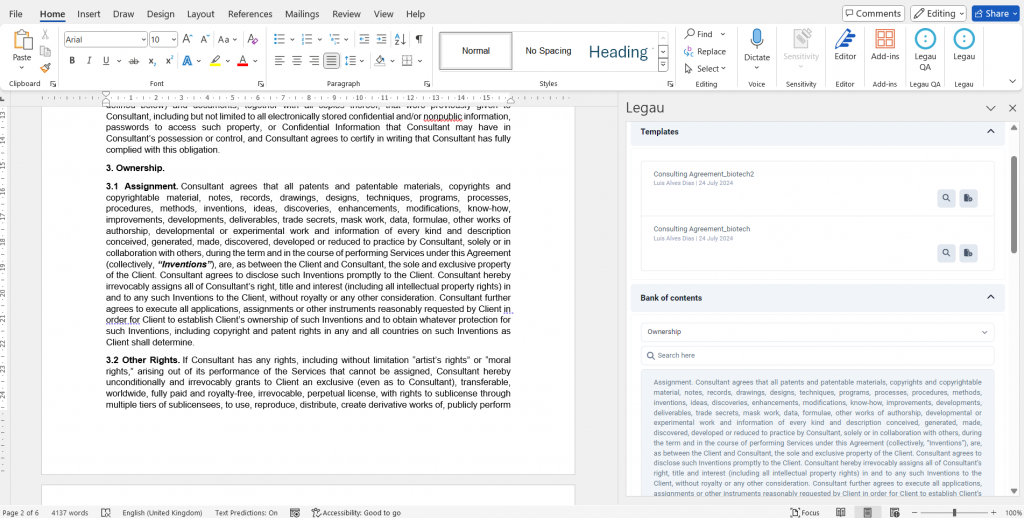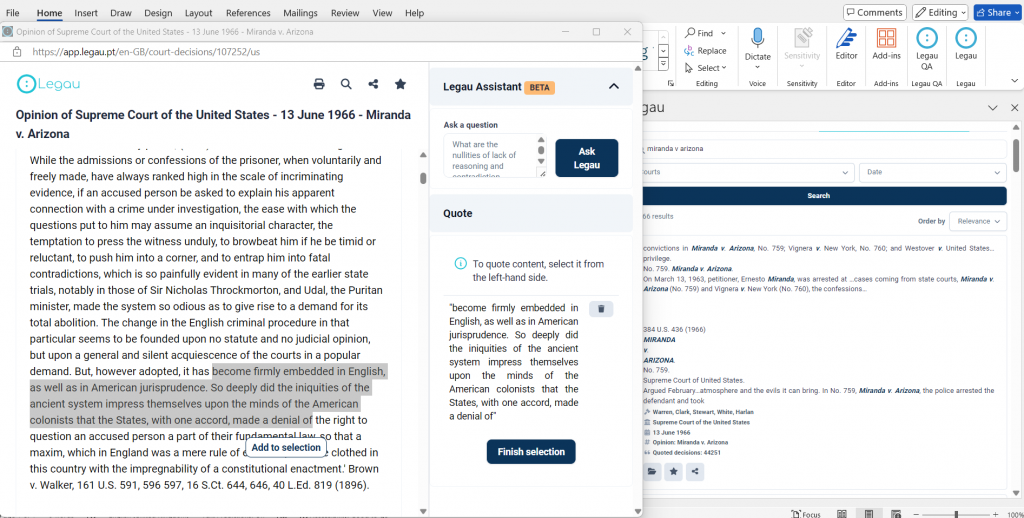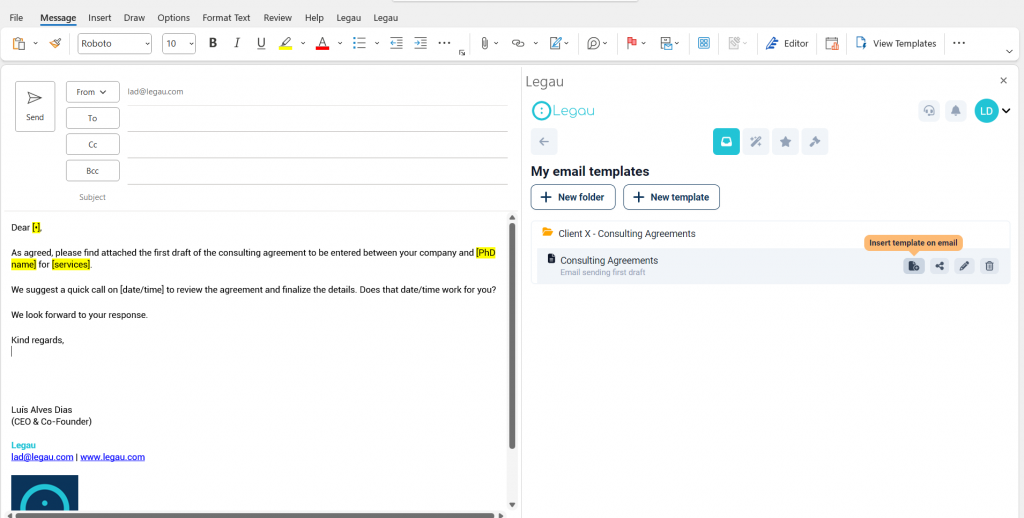Legau, a comprehensive legal document drafting platform launched in Portugal in 2021, will make its formal launch in the U.S. market at ILTACON this week, where it has been selected as one of 26 companies to participate in the conference’s Startup Hub.
Designed to streamline the legal drafting process for attorneys, Legau hopes to stand out in the market as the only legal drafting software that supports all types of legal documents throughout the drafting cycle, from research and planning to creation and review, and to do so directly within the software where attorneys already work, Microsoft Word and Outlook.
It also integrates with the document management systems law firms most commonly use, including iManage, NetDocuments. OneDrive and SharePoint.
“We support attorneys throughout the full legal drafting cycle, which for us entails four stages, from the research part where the attorney is basically gathering the right information for the document it needs to draft, to the planning of the document itself, then the creation of the document, and then reviewing the document to make sure it’s ready to be sent,” cofounder and CEO Luis Alves Dias told me during a demonstration yesterday.
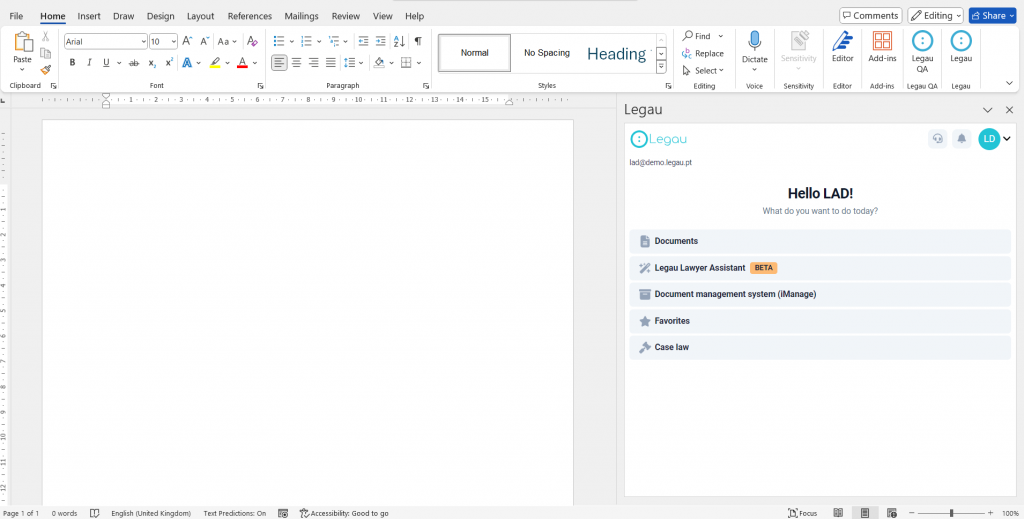
With Legau, you start from a blank page and begin to build your document from a variety of sources, including templates and your DMS, or get help from generative AI.
While the product has already been available in Portugal, where Dias says it helps customers gain back an average of 22.1% of time spent on legal drafting, Legau’s appearance at ILTACON will mark its formal U.S. launch.
As the company adapts the product for the U.S. market, it is inviting U.S. firms to participate in an early adopter program. Firms that sign up for the pilot by Sept. 30 will receive three months free access for up to 200 users. Participating firms will also be able to nominate a pro bono organization of their choice to receive a complimentary one-year subscription to Legau for up to 100 users.
Key Features and Functionalities
Legau takes a holistic approach to legal drafting, Dias said, providing a single product to support the full process of drafting both transactional and litigation. This includes:
- Research. Within Legau, attorneys can gather relevant information needed for drafting a document. This includes integrating with DMS systems to access templates, precedents, and other vital documents.
- Planning. Legau includes tools to help attorneys plan the structure and content of their documents. This can involve generating document structures and checklists, and using a chat-based interface to iterate on document details.
- Creation. Legau supports the drafting process by allowing users to create documents from templates or previous documents. Attorneys can select references and input new context, and the system adjusts the content accordingly.
- Review. Legau provides tools to review, compare and redline documents against firm standards and templates, to ensure that documents are consistent and comply with internal guidelines.
All of this happens within Microsoft Word and Outlook, so that attorneys can use it within their existing workflows. It also integrates with Microsoft SharePoint and OneDrive.
Legau uses generative AI to assist in document drafting. With its AI assistant, you select references to use in creating the document from among your own pre-existing documents and templates, then provide some context for the new document, and the assistant will generate the document draft. It is designed to handle most any type of transactional or litigation documents, including contracts, memos, briefs and pleadings.
The user can then use Legau to further check and tailor the draft against the firm’s own vetted documents, templates and playbooks.
For drafting litigation documents and memoranda, Legau integrates case law research, providing access to some 9 million federal and state court decisions. Attorneys can filter and search through case law, view related decisions, and directly insert quotations and citations into their documents. Lawyers can also use Legau’s AI assistant to summarize and answer questions about specific decisions.
Legau’s Outlook integration provides tools to help attorneys with replying to emails, drafting new emails, and accessing case law and document templates. Its email template feature allows attorneys to save and reuse email drafts.
These various features can be applied to three primary use cases, Dias said:
- Transactional work, for drafting, reviewing, and managing contracts and other transactional documents more efficiently, using both templates and AI-driven suggestions.
- Litigation, for drafting litigation documents, summarizing case law, and managing facts and evidence.
- Knowledge sharing, for sharing document templates and case law research within their firm and building a collective knowledge base.
Legau was created by a team with a background in legal practice and software development, driven by their frustration with existing legal drafting products. Both Dias and cofounder Diogo Pereira formerly worked as lawyers in large international law firms. The third cofounder, Luis Lopes, is an experienced computer engineer.
As Legau expands into the U.S. market, Dias believes the best fit for Legau will be with mid-sized firms of 50-250 attorneys. But as with any expansion, he says, “there’s always a time when you are testing the waters and seeing what the market says to you.”
I have not had a chance to try Legau myself. Based on what I saw during our demo, it appears to be a versatile tool that takes a somewhat unique approach to legal drafting. Its strong points include its ability to be used for any type of drafting, its ability to be used directly within Word and Outlook, its ability to draw suggestions from a variety of sources, its integration of generative AI, and its integration of case law.
If you are attending ILTACON next week, look for them in the Startup Hub and see their presentation on the Startup Stage on Aug. 14 at 12:35 p.m. CT.
 Robert Ambrogi Blog
Robert Ambrogi Blog